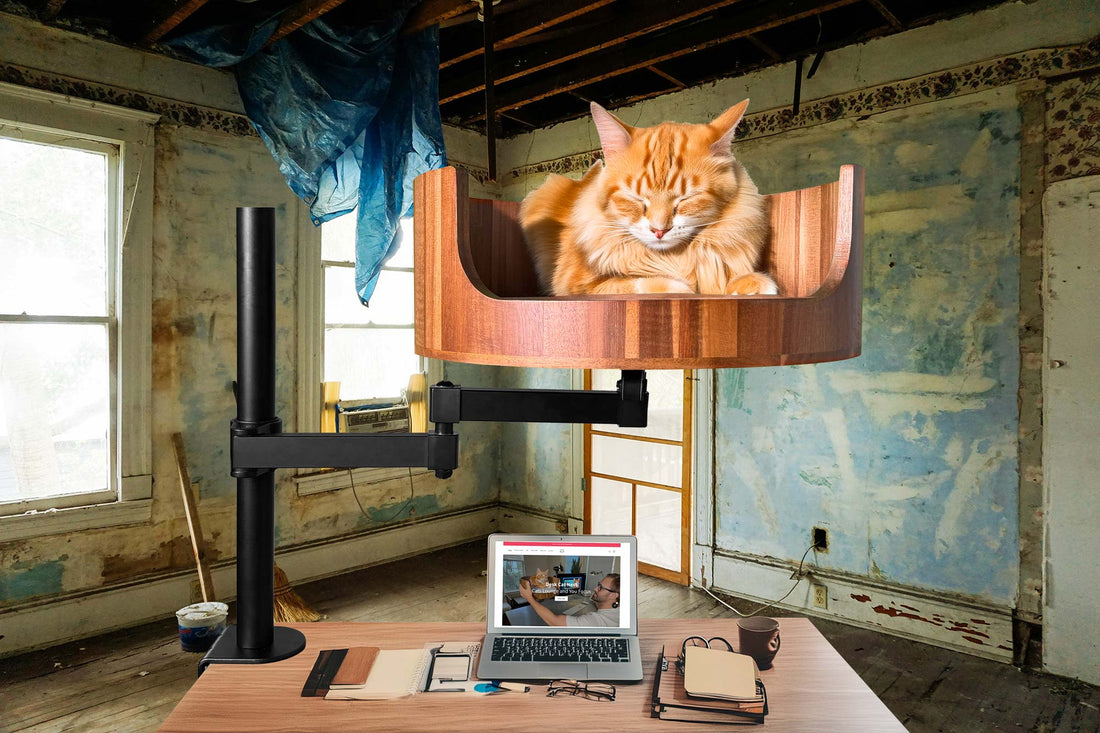
Why Do Cats Bite After Licking: Understanding Their Behavior
Share
Have you ever experienced the confusing and slightly painful phenomenon of having your cat suddenly bite you after sweetly licking your hand or arm? This common behavior in felines can leave many cat owners scratching their heads (pun intended). While it may seem like a random and unexplained action, there are actually several reasons why cats exhibit this behavior that can provide valuable insights into their otherwise mysterious ways.
In this article, we will delve into the fascinating world of feline behavior to uncover the reasons behind why cats bite after licking. From exploring the instinctual behaviors rooted in their wild ancestors to understanding the social cues cats use to communicate with their human companions, we will unravel the complex motivations behind this seemingly contradictory behavior. By gaining a deeper understanding of why cats exhibit this behavior, cat owners can better navigate their feline relationships and provide a happier and more fulfilling life for both themselves and their beloved pets.
1. Cats may bite after licking as a way of expressing overstimulation or discomfort.
2. Understanding cat body language can help prevent getting bitten during grooming sessions.
3. Biting can also be a sign of playfulness or a hunting instinct, rather than aggression.
4. Providing appropriate outlets for your cat's energy, such as playtime and interactive toys, can reduce biting behavior.
5. It is important to establish trust and mutual respect with your cat to prevent biting incidents during grooming or play.
The Licking and Biting Sequence
When cats lick themselves, it is a natural behavior that serves multiple purposes such as grooming and maintaining cleanliness. However, this grooming behavior can sometimes escalate into biting. This typically occurs when a cat reaches a sensitive or tender spot while grooming, causing discomfort or irritation that prompts them to bite. Additionally, cats may exhibit this behavior when they become overstimulated during the grooming process. Understanding the sequence of licking and biting can help cat owners anticipate and prevent potential bites.
Communication Through Biting
While biting after licking may seem aggressive or unpredictable, it is often a form of communication for cats. In some cases, cats may gently nip or bite their owners after grooming as a way to express affection or to show trust. This can be seen in cats that engage in mutual grooming with their feline companions to strengthen their bond. By paying attention to the context and body language accompanying the biting behavior, cat owners can better interpret their cat's intentions and respond appropriately.
Addressing Unwanted Biting Behavior
To address unwanted biting behavior in cats, it is essential to identify the underlying cause and take appropriate steps to modify their behavior. Providing alternative outlets for grooming, such as interactive toys or grooming tools, can help redirect their focus away from excessive self-grooming that may lead to biting. Additionally, creating a calm and stress-free environment for the cat can minimize overstimulation that triggers biting episodes. Consulting with a veterinarian or animal behaviorist can also offer further insight and guidance on managing and modifying biting behavior in cats.
Desk Cat Nest FAQ
Why do cats bite after licking?
Cats might bite after licking as a way to show affection. This behavior, known as love biting, is a common way for cats to express their love and can often be seen when they are feeling particularly happy or content.
Is it normal for my cat to bite me after licking?
Yes, it is normal for cats to bite after licking, especially during moments of affection. However, it is important to pay attention to your cat's body language and avoid encouraging this behavior if it becomes too rough or aggressive.
How can I prevent my cat from biting after licking?
One way to prevent your cat from biting after licking is to redirect their behavior by offering them a toy or treat to distract them. Additionally, you can also reinforce positive behaviors by rewarding them when they lick without biting.
Should I be concerned if my cat's biting after licking becomes aggressive?
If your cat's biting after licking becomes aggressive or is accompanied by other concerning behaviors, it is important to consult with a veterinarian or animal behaviorist to address any underlying issues that may be causing this behavior.
Can the Desk Cat Nest help reduce my cat's biting after licking?
While the Desk Cat Nest is designed to provide a cozy and comfortable space for your cat to relax, it may not directly address or prevent biting after licking. However, creating a calming environment for your cat with the Desk Cat Nest may help reduce stress and anxiety, which can sometimes contribute to aggressive behaviors.
In conclusion, providing your cat with a comfortable and secure space, such as a Desk Cat Bed, can help address the issue of cats biting after licking. The elevated and enclosed design of the Desk Cat Bed provides a safe and cozy retreat for your feline friend, reducing their stress and anxiety levels. With the added benefits of promoting relaxation and reducing unwanted behaviors, the Desk Cat Bed is a valuable choice for cat owners seeking to alleviate this common issue. Invest in a Desk Cat Bed today to create a peaceful and harmonious environment for your beloved pet.



















































